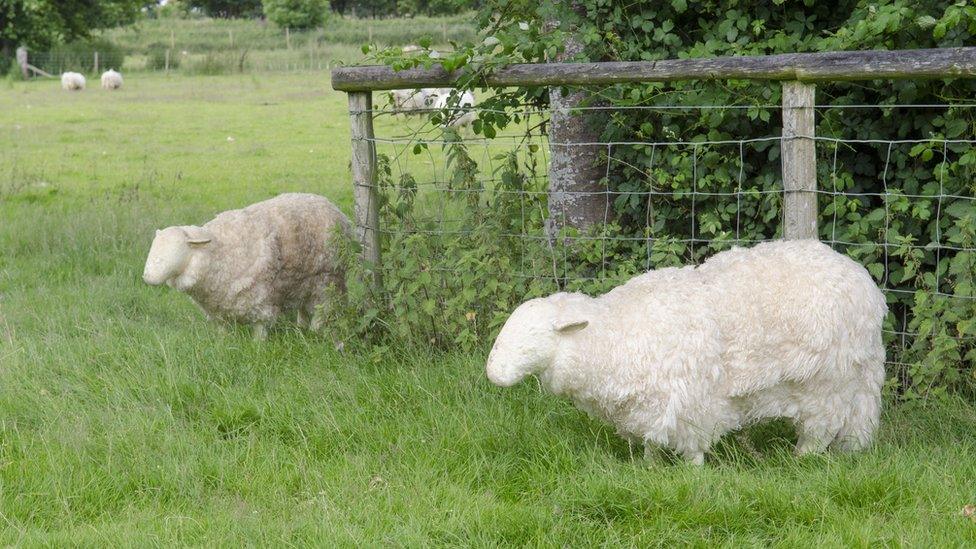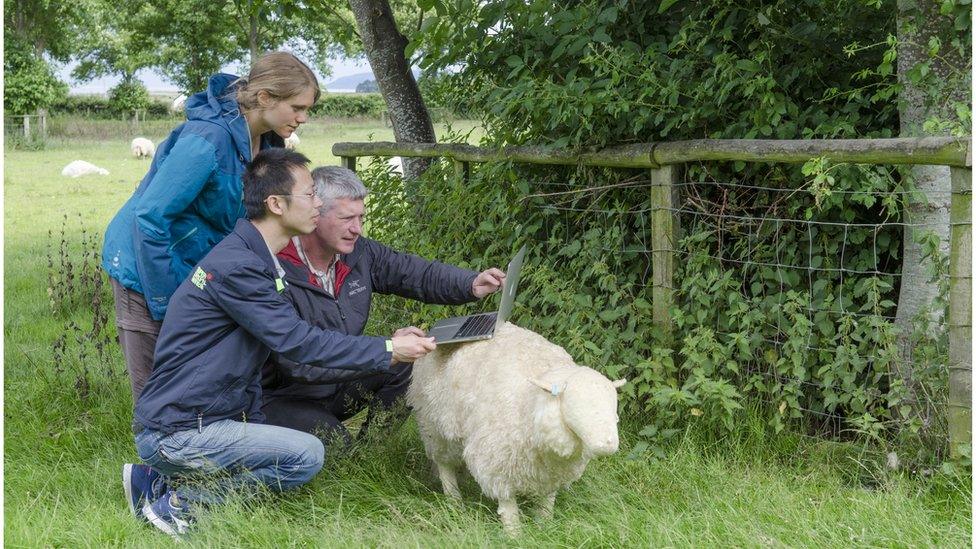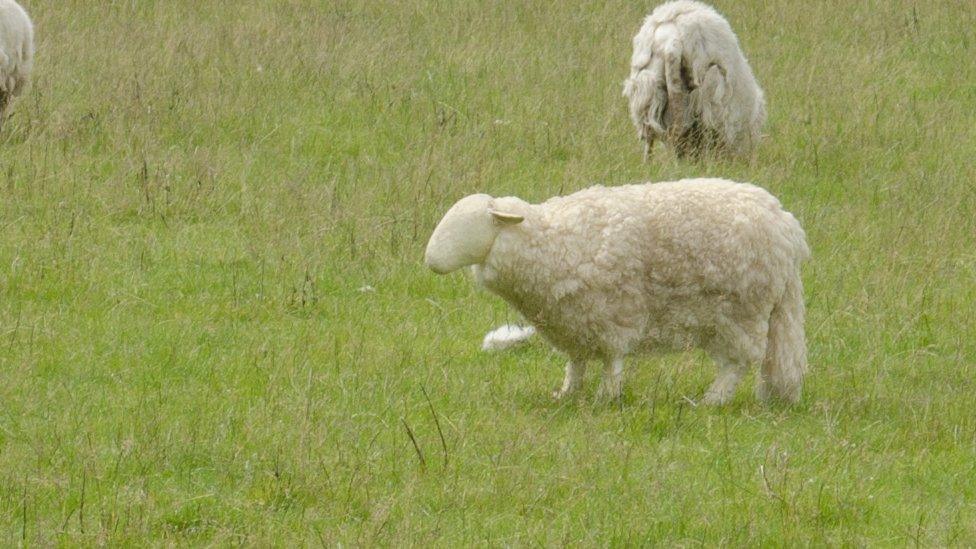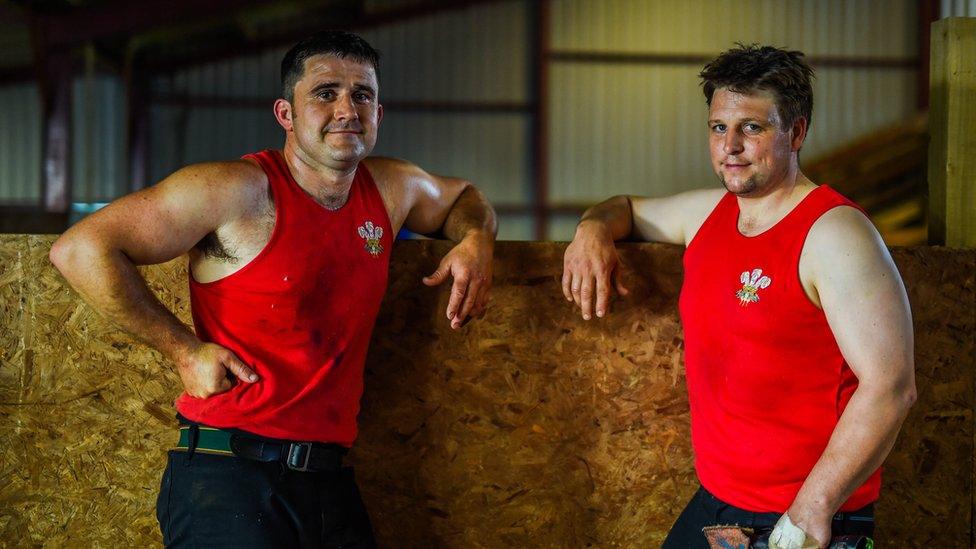Bangor Uni uses electric sheep in flock welfare study
- Published

It sounds like something straight from a science fiction novel but electric sheep are now grazing in the fields of north Wales.
Bangor University researchers are using the futuristic animals to find out how sheep respond to weather.
Two fake ewes are fitted with a battery-operated heating system, which simulates the heat produced by a live animal.
The team said the research was throwing up surprising results.
Complete with thick fleeces, ear tags and woolly tails, the e-sheep are moved around fields as part of a study to see how to improve welfare and productivity of flocks.

By measuring the difference between their internal and external temperature, researchers can work out how much energy the sheep lose by dealing with the weather.
They are being used to simulate how real flocks respond to weather conditions and the effectiveness of trees and "shelter belts" of rows of trees or shrubs in protecting them.
PhD student Pip Jones said looking at weather on a "sheep scale" was providing some unexpected findings.
'Incredibly hot'
She said: "Sheep use a substantial amount of energy just staying warm, and lose a lot of heat when it's cool, especially when there's a wind chill.
"On a hot day, when the weather was around 30C (86F) at the study site, we put a model sheep in the direct sun, and the fleece recorded a temperature of 60C (140F) which is incredibly hot.
"This is where the shelter of trees could really contribute, creating shade in the summer and reducing the effects of wind chill in winter."

The electric sheep have a battery-operated heating system which stimulates the heat produced by a live animal
Dr Andy Smith, senior lecturer in forestry at Bangor University, said: "If it's very cold a sheep burns more energy to keep warm for survival and it needs more food.
"Conversely, if it's too hot, animals tend to eat less and seek shade to keep cool. Both situations affect weight gain and productivity because energy that could go into growth is used to regulate metabolism instead."
- Published28 August 2016

- Published15 August 2016

- Published19 August 2016
